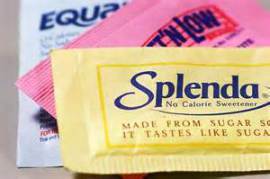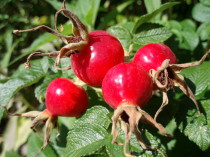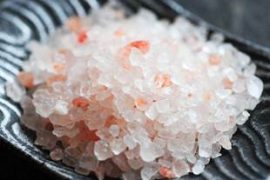I have to be honest and so I am not a fan of artificial sweeteners. There are too many links to serious health problems and artificial sweeteners. As far as artificial sweeteners offering zero calories, well it doesn’t seem to be doing much for America’s waistline either. So when the FDA announced yet another artificial sweetener for consumers I was not impressed.
The FDA is amending their food additive regulations to provide for the “safe” use of Advantame, after receiving a petition from Ajinomoto Co., Inc., a Japanese company which produces most of the world’s MSG as well as being a major supplier of aspartame. (1, 2) It will be marketed as a non-nutritive sweetener and flavor enhancer for foods, beverages and for tabletop use. (3) Advantame is 20,000 times sweeter, gram per gram, than table sugar, making it the sweetest, by far, of the artificial sweeteners currently on the market. (4) Advantame does not yet have a brand name for the marketplace.
“Benefits” of Advantame-According to the manufacturer: (2)
- It doesn’t break down when exposed to high heat. It has been approved for use in baked goods, frozen desserts, soda and other processed foods.
- Advantame is derived from aspartame and vanillin.
- It is about 20,000 times sweeter than sucrose and 100 times sweeter than aspartame.
- Advantame has a clean, sweet taste very similar to aspartame with only a slightly longer sweetness duration.
- Advantame has similar stability to aspartame in most applications, better stability in many other applications.
Why should I be concerned about advantame?
The number of mice that survived the study was below the FDA’s own recommendations. Senior Scientist Lisa Lefferts, at CSPINET (The Center for Science in the Public Interest) shares her concern that “In a key cancer study in mice, the number of mice that survived to the end of the study was below the FDA’s own scientific recommendations, and is therefore inadequate to provide confidence in the safety of a chemical likely to be consumed by millions of people”. (5)
It’s a derivative of aspartame. According to Science Direct, advantame is an N-substituted (aspartic acid portion) derivative of aspartame that is similar in structure to Neotame, another N-substituted aspartame. (6)
Aspartame accounts for over 75 percent of the adverse reactions to food additives reported to the FDA. (7) Some of the reported side effects include headaches, nausea, dizziness, weakness, and change in heart rate, seizures, difficulty breathing, sleep problems and neurological reactions. (8)
Advantame doesn’t have to be labelled on food packaging. Individuals with the genetic disorder PKU (phenylketonuria) have a difficult time metabolizing phenylalanine, which is a component of both aspartame and advantame. The FDA does require label information about aspartame to warn individuals about its presence in foods. (9) However when evaluating whether or not this label should be applied to foods with advantame, the FDA decided it was not necessary. Their reasoning is that advantame is much sweeter than aspartame, and the amount needed to achieve the same level of sweetness is so low, that alerts are not necessary.
What should you do if you think you are having a reaction to high-intensity sweeteners? (10)
If you believe that you are having an adverse reaction caused by consuming a high-intensity sweetener, stop consuming it immediately and discuss your concerns with your health care provider.
You or your health care provider can report adverse events to FDA in the following ways:
By phone at 240-402-2405
By email at CAERS@cfsan.fda.gov
By mail at: FDA, CAERS, HFS-700, 2A-012/CPK1, 5100 Paint Branch Parkway, College Park, MD 20740
Be aware of other high intensity sweeteners in the marketplace (11)
Neotame-brand name Newtame
Saccharin- brand name Sweet ‘N Low
Aspartame –brand name Equal
Acesulfame potassium – brand name Sweet One
Sucralose- brand name Splenda
Are artificial sweeteners finally losing their appeal?
Splenda sales have dropped 40% since 2009, along with a 16% drop for Sweet ‘N Low and a 23% drop for Equal. (12) Perhaps consumers are finally being heard. We don’t want chemicals in our food. We want whole, real, organic, non –GMO food, not something made in a lab.
As for me I’ll skip the artificial stuff and enjoy the real thing in small quantities.
References:
2. http://www.aji-aspartame.com/index.asp
4. http://www.aji-aspartame.com/products/advantame.asp
5. http://cspinet.org/new/201405211.html
6. http://www.sciencedirect.com/science/article/pii/S0278691511002900
8. http://www.fda.gov/ohrms/dockets/dailys/03/Jan03/012203/02P-0317_emc-000199.txt
9. http://www.cbsnews.com/news/fda-approves-new-artificial-sweetener/
10.http://www.fda.gov/Food/IngredientsPackagingLabeling/FoodAdditivesIngredients/ucm397716.htm
11. http://www.fda.gov/ForConsumers/ConsumerUpdates/ucm397711.htm
12. http://www.marketwatch.com/story/were-eating-more-sugar-less-splenda-2013-05-13








